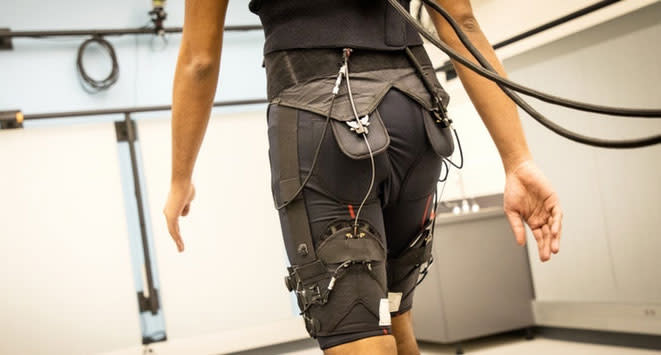Harvard researchers make better, smarter walking aids
New algorithms make it easier for people with mobility issues to walk.
Humans don't all look, talk, or walk the same, with us shifting our weight and style in order to save much energy as possible. This adaptability is a problem for researchers who want to build assistive devices for folks with mobility issues, however. It's what has prompted a team out of Harvard to craft an algorithm that can determine the wearer's individual needs after just twenty minutes of analysis.
Let's imagine that you have difficulty walking, and need a soft exosuit to give your knees or hips a little push to get around. That's what Harvard Biodesign Lab is building, a fancy-pants pair of shorts that can provide the right help at the right time. But ensuring that the gear works correctly has never been an easy, or simple process.
Using the new algorithm, the team looks at a variety of signals beyond just how a person steps, but also their breathing rate and psychological cues. And after the short setup period is over, the team claims that the system can cut metabolic cost -- the energy you burn when you step -- by more than 17 percent. It's hoped that this knowledge can help build better exosuits for people with mobility issues, helping them get around without a lot of extra stress.


